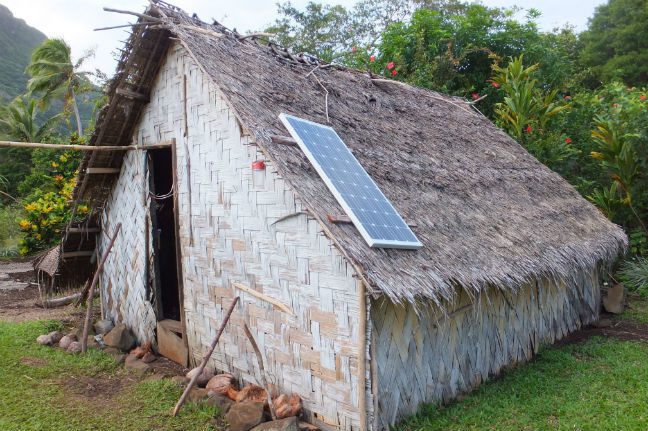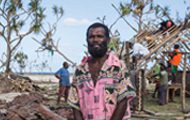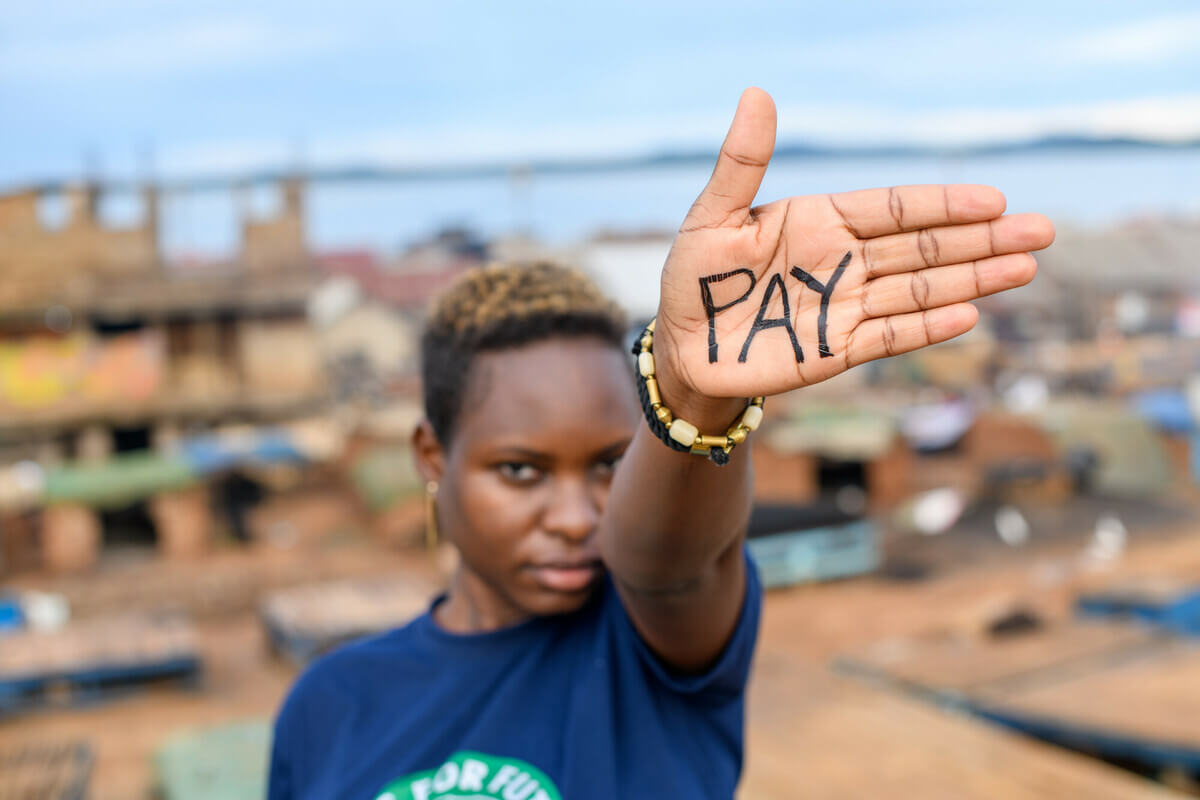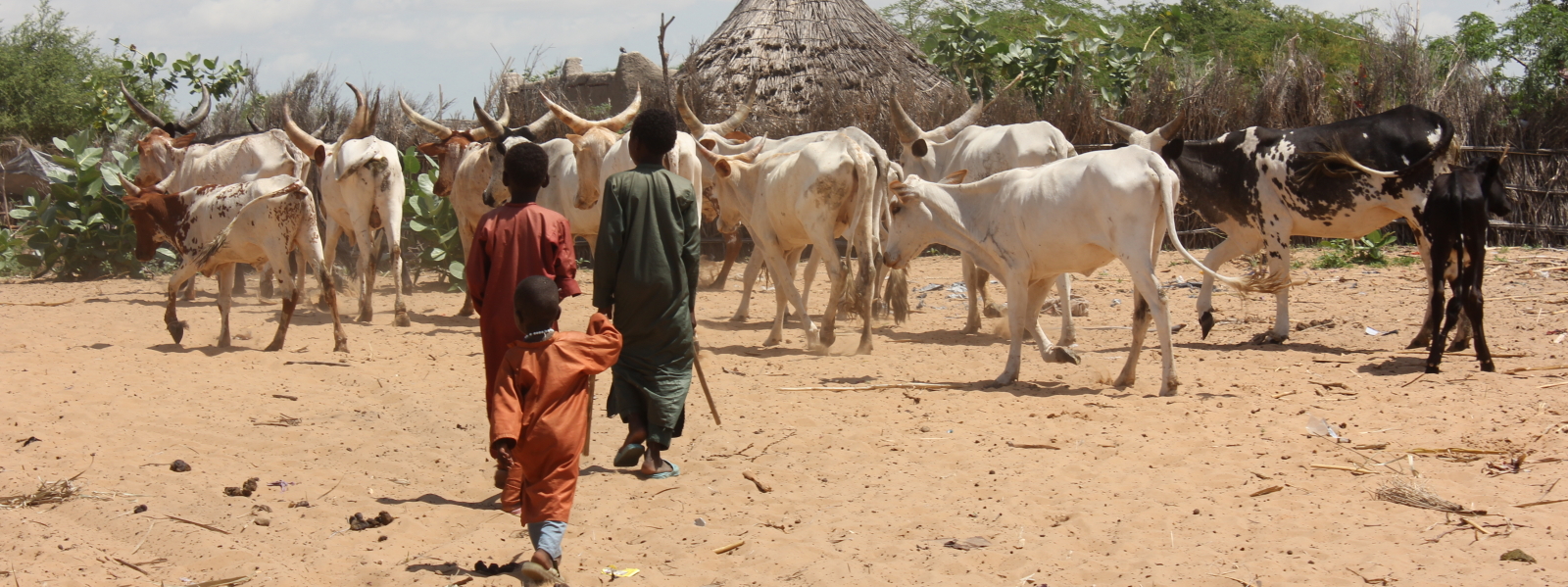By Simon Bradshaw, Climate Change Advocacy Coordinator, and Ula Majewski, GROW Campaign Lead.
As an international development agency we like to think that Oxfam and our partners around the globe have learned a few things about poverty over the decades. So when we hear the Prime Minister declaring that “coal is good for humanity”, we need to set the record straight. Coal is not a solution to poverty.
Let’s begin with the obvious. Emissions produced from burning coal for power are the single biggest driver of climate change. And climate change is a major threat in the fight against hunger. From the Pacific to southern Africa, communities tell of changing seasons and unpredictable rain patterns affecting their ability to grow food. At the same time, the risk of extreme losses from floods, cyclones and wildfires is on the rise.
In short, climate change is making it harder for people to grow and buy enough food to eat. And it’s the poorest communities – those with the least responsibility for carbon pollution – who are bearing the brunt.
In short, climate change is making it harder for people to grow and buy enough food to eat.
If we’re to have a good chance of meeting the internationally agreed goal of limiting warming to no more than 2 degrees – let alone the 1.5 degrees that many countries rightly demand for their very survival – then around 80% of known coal reserves will need to remain unused. This includes nearly all of Australia’s known reserves.
Coal’s impact on health and community
Coal’s negative impacts are not limited to climate change. Poor air quality and health impacts are some of the key reasons that China has started to move away from coal. These impacts hit the poorest people the hardest. In some places, communities are being displaced from their land to make way for mines.
Improving access to energy is fundamental to reducing poverty and ensuring communities can enjoy a bright and prosperous future. Sound like an impossible conundrum? Thankfully it isn’t. On the contrary, with the right support and political will, fighting poverty and protecting the climate can go hand in hand.
Increasing access to energy
Let’s take a closer look at the challenge of increasing access to energy. Coal power is often the expensive and impractical option for the hundreds of millions of people across sub-Saharan Africa and Asia who still live without electricity. An overwhelming majority live in rural areas, which are often not connected to a centralised energy grid. Coal can do little towards improving energy access unless accompanied by massive investment in grid extensions.
On the other hand, tapping into local renewable energy sources means access to clean, safe and affordable energy, and is bringing jobs and development to rural and urban communities. In Bangladesh the number of home solar systems has jumped by more than a hundredfold in the past 10 years, in turn creating over a hundred thousand new jobs. In the Pacific, solar energy is reducing reliance on expensive imported diesel and providing power to schools and health clinics.
Not surprisingly, many developing countries are setting ambitious targets for renewable energy. In late 2014 India announced a goal to increase its solar capacity to 100GW by 2022. That’s 25 times the total amount of solar power currently installed in Australia. At the same time, we have watched the Australian Government slash investment in clean renewable energy.
Australia must support developing countries in building the sustainable, low-carbon economies of the future
Prime Minister Narendra Modi recently urged the world to join hands with India and help reduce the cost of solar energy and improve accessibility. We can only agree. Australia must do more to support poorer countries with implementing sustainable development strategies. Clean renewables are the only smart solution for energy production in our warming world, and they require the appropriate investment.
To be clear, while the long-term benefits for both people and planet are obvious, renewable energy can still present challenges when it comes to up-front costs. Developed countries are obliged to help meet these costs on account of our historical responsibility for carbon pollution and our relative wealth. Australia’s first responsibility is to phase out coal from our own energy supply and shift to a smart renewable-energy economy. But we must also do our part to support developing countries with their own renewable energy plans.
If Australia truly wishes to help bring low-cost energy to the world and build a bright economic future for itself, it’s time we stopped exporting dirty coal and promoting it as a false solution to poverty, and began exporting ideas and innovation. At the same time we must fulfill our obligation to help cover the costs of sustainable development.
Thankfully, with declining costs triggering a gush in renewable energy investment worldwide, we are already in the midst of a global clean energy revolution. The question remains, will Australia continue to keep its head buried in the coal pit or take some giant steps into a clean renewable vision for the 21st century.
Don’t let our friends and neighbours pay for our inaction. Tell the PM to act on climate.




